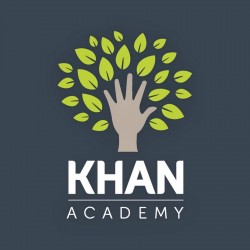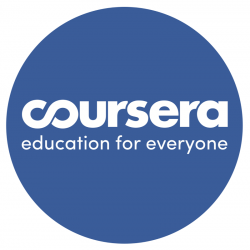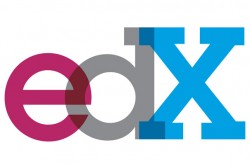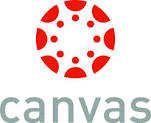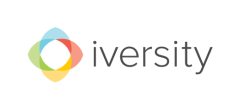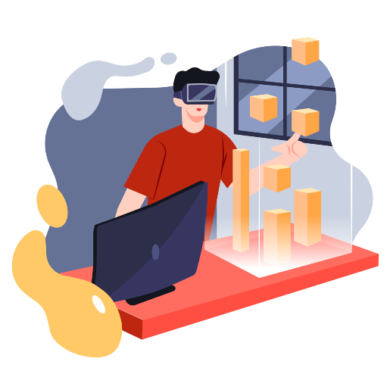 In recent years a plethora of online education platforms have come onto the scene, seeking to revolutionize one of the oldest institutions in existence and provide free (or at least affordable) education to anyone, anywhere in the world, as long as they have simple internet access. Some of these schools are well-known, some are lingering in obscurity. Some are specialized while others are a one-stop shop. Others are hidden gems …diamonds in the rough. Sprouting seedlings that need nutrients and sunlight so they can grow to become mature organisms.
In recent years a plethora of online education platforms have come onto the scene, seeking to revolutionize one of the oldest institutions in existence and provide free (or at least affordable) education to anyone, anywhere in the world, as long as they have simple internet access. Some of these schools are well-known, some are lingering in obscurity. Some are specialized while others are a one-stop shop. Others are hidden gems …diamonds in the rough. Sprouting seedlings that need nutrients and sunlight so they can grow to become mature organisms.
In our pursuit and research into the possibilities of transition into a resource based economy and moneyless society, it would make sense to utilize the educational resources we have available to us at little or no cost and to educate others about them as well, so that we all may have access to higher education and take advantage of the opportunity to enhance our skills for the benefit of all. Here, we will take a look at a few of these budding institutions that are poised to change the landscape of our education system forever.
Kahn Academy
Khan Academy is probably one of the most well-known online education platforms in the world. They provide courses ranging from math, science, economics, arts, computer programming, SAT test prep, college admission guidance, and more, all in a clean, well-designed platform. They have also partnered with institutions like NASA, The Museum of Modern Art, The California Academy of Sciences, and MIT to offer specialized content, such as pictures and information about museum artifacts and crash courses in a variety of subjects.
Codecademy
![]() Codecademy dives into the world of computer code full-force and is leading the way in free online platforms for computer coding education. With lessons presented in an easy-to-use fashion, you can learn HTML, CSS, Javascript, jQuery, PHP, Python, and Ruby. 30-minute exercises and tutorials walking you through a duplication of several popular websites make the information easier to assimilate and the process more enjoyable. Also, if you are interested, they are currently hiring at the time of this writing, and looking for individuals to “help us build the education the world deserves.”
Codecademy dives into the world of computer code full-force and is leading the way in free online platforms for computer coding education. With lessons presented in an easy-to-use fashion, you can learn HTML, CSS, Javascript, jQuery, PHP, Python, and Ruby. 30-minute exercises and tutorials walking you through a duplication of several popular websites make the information easier to assimilate and the process more enjoyable. Also, if you are interested, they are currently hiring at the time of this writing, and looking for individuals to “help us build the education the world deserves.”
+Acumen
+Acumen (Plus Acumen, a division of Acumen – a non-profit global venture fund that uses entrepreneurial approaches to solve the problems of poverty) offers free online courses and a social platform geared toward educating “social change leaders,” with courses such as “Storytelling for Change,” “Board Strategy for Social Enterprise,” and “Design Kit: The Course For Human-Centered Design.” While they offer relatively few courses compared to most other organizations listed here, we thought they were noteworthy of mention since they provide education material for individuals interested in impacting the world with positive change in the areas of water, health, housing, energy, agriculture, and education, with a focus on changing the way the world tackles poverty.
MOOCS (Massive Open Online Courses)
What Exactly Defines a MOOC?
There is no exact, specific definition of what characteristics comprise a massive open online course. According to Khan Academy founder Salman Khan, his company is not a MOOC, which is generally a “transplantation” of a course that you would find at a university, usually designed by universities themselves or other institutions, with start and end dates, and presented on a platform by a third party which provides the course selection and interface to the student. Salman says his company is more about being interactive with games and activities, and instead encourages students to go at their own pace (although some MOOCS are go-at-your-own-pace, as well). Although, generally speaking, while there may be some exceptions, neither of these platforms offer college credit or degree programs unless you pay to obtain credit from the college or university that designed the course.
For our purposes here, we will place the following companies in the MOOC category, although some may say that the schools above could fall into this category, as well. While some of these institutions may offer some of the same courses from the same universities, there is a decent variety between individual companies and it’s worth checking several of them out. This is not a complete list. For additional educational resources please see the inner sidebar to the right.
Academic Earth
Founded in 2008, Academic Earth offers links to over 750 online courses and 8,500 lectures in a variety of categories.
Coursera
With over 10 million students and 886 courses and 116 partners, Coursera is one of the leading open course providers. With a mission to “provide universal access to the world’s best education,” the offer users a mind-numbing array of courses and lectures in 20 different languages.
Udacity
 Specializing in the more technical side of online MOOC education, Udacity offers go-at-your-own pace courses in data science, web development, software engineering, and more. They also offer “nanodegree” programs and assistance with job placement.
Specializing in the more technical side of online MOOC education, Udacity offers go-at-your-own pace courses in data science, web development, software engineering, and more. They also offer “nanodegree” programs and assistance with job placement.
EdX
EdX, founded by Harvard and MIT, offers nearly 400 free online courses in a vast array of standard subject material such as mathematics, science, and literature, as well as high school prep and professional development courses. Also available are “X” series courses in which you receive a certificate after completion of material in a specific subject area.
Canvas Network
Canvas Network, one of the more hip options in the MOOC world, offers courses in a vast array of subject material, with a focus on life skills in general. They have courses about college readiness, interior design, CPR & AED, and even an online course about how to build online courses.
Alison
Founded in 2007 by global leader and innovator Mike Feerick, and claiming to be “the original MOOC,” Alison offers 600 courses covering a wide variety of subject material and boasts an online community of more than 4 million students.
Iversity
Iversity is a European version of the MOOC platform that focuses on working with instructors, higher education institutions and knowledge-based companies to provide high-quality courses that are engaging, interactive and fun. They are also working the European Credit Transfer and Accumulation System (ECTS) and some of their partners already award ECTS credits to online learners on this platform.
Online Universities With (Almost-)Free, Nationally-Accredited Degree Programs
University Now
![]() University Now is an online university that is accredited by the Distance Education & Training Council (accrediting agency which is nationally recognized by the U.S. Department of Education ) and the Council for Higher Education Accreditation. Although they are technically not a free school, they have devised a plan to lower the cost of tuition to meet the students’ assistance amounts that reimburses their workers. There are currently demographic restrictions and your employer must be willing to reimburse you for at least some of your education, but in effect, University Now has created a near tuition-free situation for some of its students in the San Francisco, Oakland and Sacramento areas.
University Now is an online university that is accredited by the Distance Education & Training Council (accrediting agency which is nationally recognized by the U.S. Department of Education ) and the Council for Higher Education Accreditation. Although they are technically not a free school, they have devised a plan to lower the cost of tuition to meet the students’ assistance amounts that reimburses their workers. There are currently demographic restrictions and your employer must be willing to reimburse you for at least some of your education, but in effect, University Now has created a near tuition-free situation for some of its students in the San Francisco, Oakland and Sacramento areas.
University of the People

A massive accomplishment in the arena of free, open education, University of the People is an online university, also accredited by the Distance Education & Training Council institutional accrediting agency. This means you can earn an actual degree online, for practically nothing, and its standards for quality are comparable to that of a degree from a 4-year university with a physical campus in the United States. This is an excellent thing for foreigners, especially in developing countries, where having a degree from an institution in the United States can be of great benefit.
While not 100% free, the cost is almost nothing compared to a normal university. The University of the People-
…does not charge students to take classes, does not charge for any reading and other study materials, and does not charge for annual enrollment. In order to remain sustainable, UoPeople charges small processing fees for application ($10-$50) and examination processing ($100/per end-of-course exam).
For those individuals who are unable to pay their Exam Processing Fees, UoPeople works extremely hard to ensure that no student of UoPeople is left out of higher education for financial reasons.
Currently, while still in it’s infancy, the University only offers 4 degree programs: Associate and Bachelor degrees in Business Administration and Associate and Bachelor degrees in Computer Science. However, depending on their success in the future, we will probably see the course selection expand in coming years.
Shai Reshef: An ultra-low-cost college degree
Learn about Shai Reshef in this brief video.
Did we miss any? Let us know at [email protected] !

